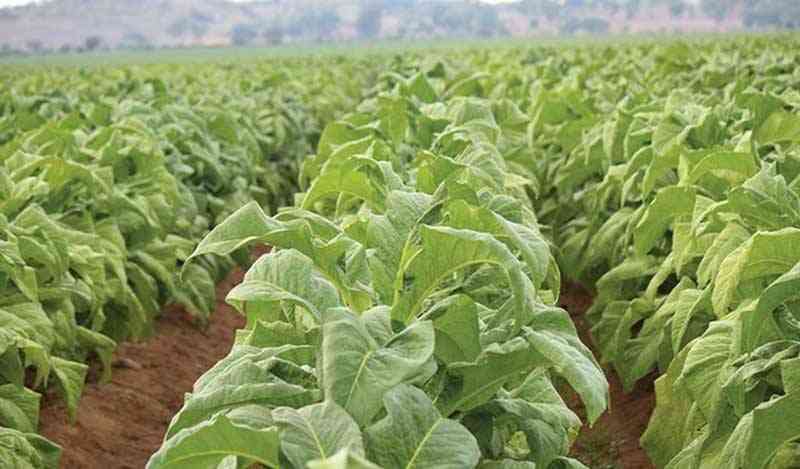
AGRICULTURE insurance plays a significant role in creating value for the Zimbabwean economy and society.
As a largely agricultural-based nation, Zimbabwe heavily depends on its agricultural sector for food production, employment generation, and export earnings.
However, farming activities are often exposed to various risks such as unpredictable weather patterns, pests, diseases, and market fluctuations, which can lead to crop failures, income losses, and economic instability.
By providing agriculture insurance, the Zimbabwean economy benefits from increased resilience and stability in the agricultural sector.
Farmers, who have insurance coverage are better equipped to recover from natural disasters or any unforeseen events that may damage their crops or livestock.
This stability ensures a consistent food supply and keeps the economy from facing sudden inflationary pressures due to shortages, further facilitating access to credit and investment opportunities for farmers.
Zimbabwe used to be the bread basket of Africa, but even as the title is long gone, agriculture remains the backbone of the economy of Zimbabwe.
For this reason, experts have argued that the best resource the Zimbabwe business can leverage on is agriculture.
- Open letter to President Mnangagwa
- Feature: ‘It’s worse right now than under Mugabe’: Sikhala pays the price of opposition in solitary cell
- Masvingo turns down fire tender deal
- Human-wildlife conflict drive African wild dogs to extinction
Keep Reading
This year, the Insurance and Pensions Commission and the International Finance Corporation launched the agricultural index-based insurance project whose objective is to provide insurance solutions for smallholder farmers who are vulnerable to climate-related crop losses in Zimbabwe.
The launch came on the premises that, despite risks facing the agricultural sector, for example, uncertainty owing to climate change, the uptake of agricultural insurance is relatively low.
Some of the factors behind this are unaffordability of existing agricultural insurance products, inappropriate products, low levels of awareness on the role of insurance by farmers, especially smallholder farmers and lack of trust between insurers and farmers.
With insurance coverage, financial institutions are more willing to provide loans to farmers as they have reduced exposure to risk.
This, in turn, encourages farmers to invest in modern agricultural technologies, equipment, and inputs, leading to increased productivity and overall economic growth. Socially, agriculture insurance contributes to poverty alleviation and social welfare.
Agricultural risk management expert Jasper Manyika said climate change was the elephant in the room as it was becoming warmer with increased incidences of hail, windstorm and other vagaries related to weather making accumulation of losses an obvious occurrence.
“Insurance penetration is a bit low in Zimbabwe. That is the contribution of insurance to GDP is on the low side. What is needed to grow the sector? We need a stable economy, predictability, confidence and trust (rebuilding),” he said.
“It comes again to strong players with capacity to pay claims without short-changing clients. When it comes to costs, they need to be affordable. Demand is a function of incomes.”
Manyika added that the value chain that is there must be a culture of risk management and insurance across the value chain.
“Mandatory insurance pools, for example road traffic act with motor insurance and THI Insurance was a form of mandatory insurance when it began. Skills have to be developed on the insurance value chain to midwife the insurance agenda,” he said.
“In other countries the insurance fund would be state guaranteed though it would operate on private sector inspired values.”
Agriculture insurance has been in the market for some time but was mainly utilised by commercial farmers.
In the event of a crop failure or income loss, insurance pay-outs act as a safety net for farmers, preventing them from falling into extreme poverty.
This not only improves their livelihood but also reduces the burden on social welfare programmes. Additionally, insurance coverage enables farmers to plan for the future with greater confidence, as they have a safety net to rely on in times of need.
The role of agriculture insurance in creating value for the Zimbabwean economy and society cannot be overstated.
Actuarial Society of Zimbabwe president-elect Prosper Matiashe said there is a need to make the product affordable and accessible to small-scale farmers including rural farmers.
In addition, he said the product should be reflective of the climate risks that the nation faces.
“Agriculture is a key source of income for a significant proportion of Zimbabweans as shown by various reports from ZimStat. Therefore, agriculture insurance will help increase financial inclusion and has potential to further increase insurance penetration,” Matiashe said.
“Increased financial inclusion is critical to enable resilience of communities through protecting wealth and enabling its transfer across generations. Previously, farmers would encounter a drought and livestock and crop losses would wipe off most of the wealth they had accumulated. Risk transfer through agriculture insurance will therefore enable the farmers to retool and restock without disposing of material assets that they own,” Matiashe said.
He added that agriculture insurance will also help to build more climate resilience given the weather extremes that Zimbabwe is already witnessing.
“Hence, the product is a critical tool to climate change adaptation and supporting mitigation mechanisms,” he said.
Market watchers have often argued that agricultural insurance provides stability and resilience to the agricultural sector, encourages investment and modernisation, and contributes to poverty reduction and social welfare.







